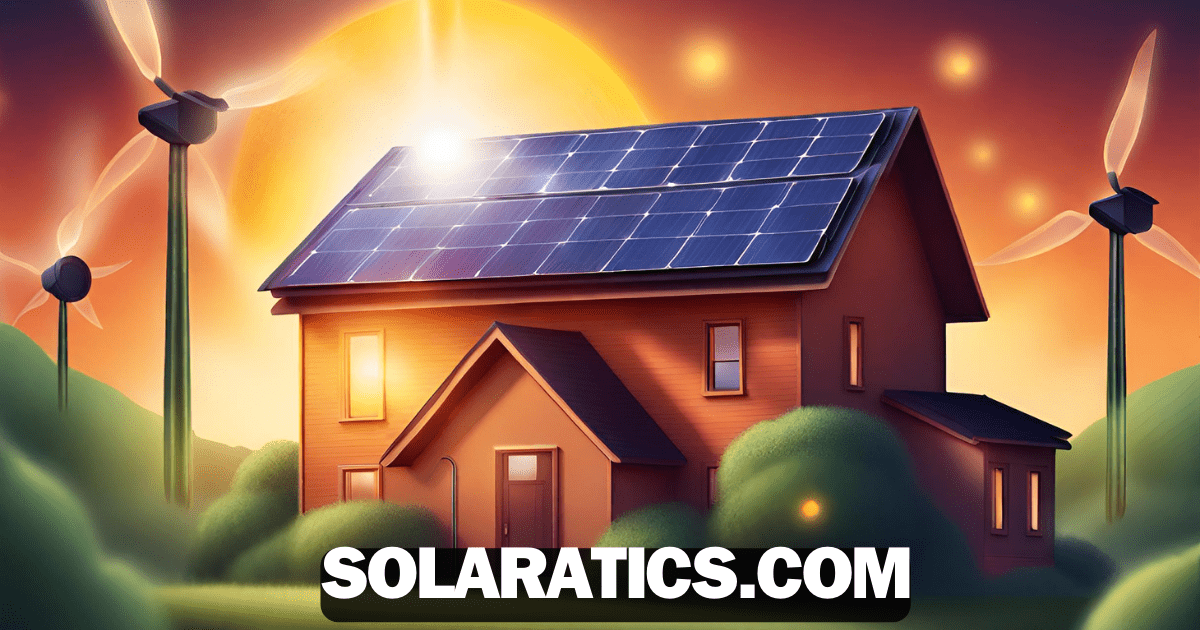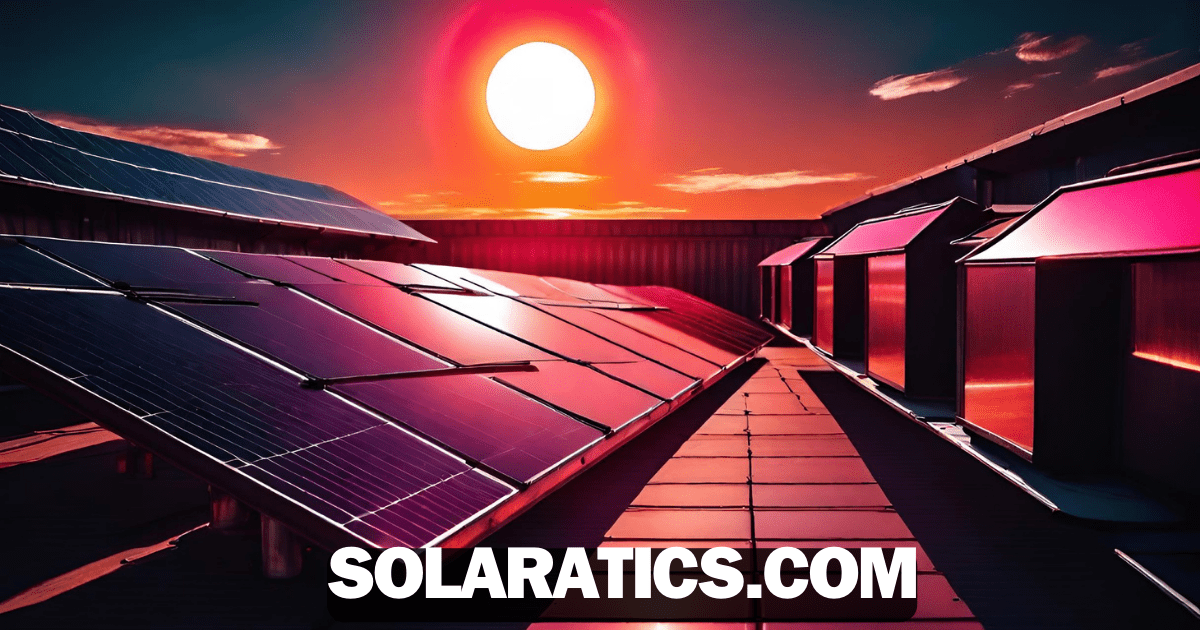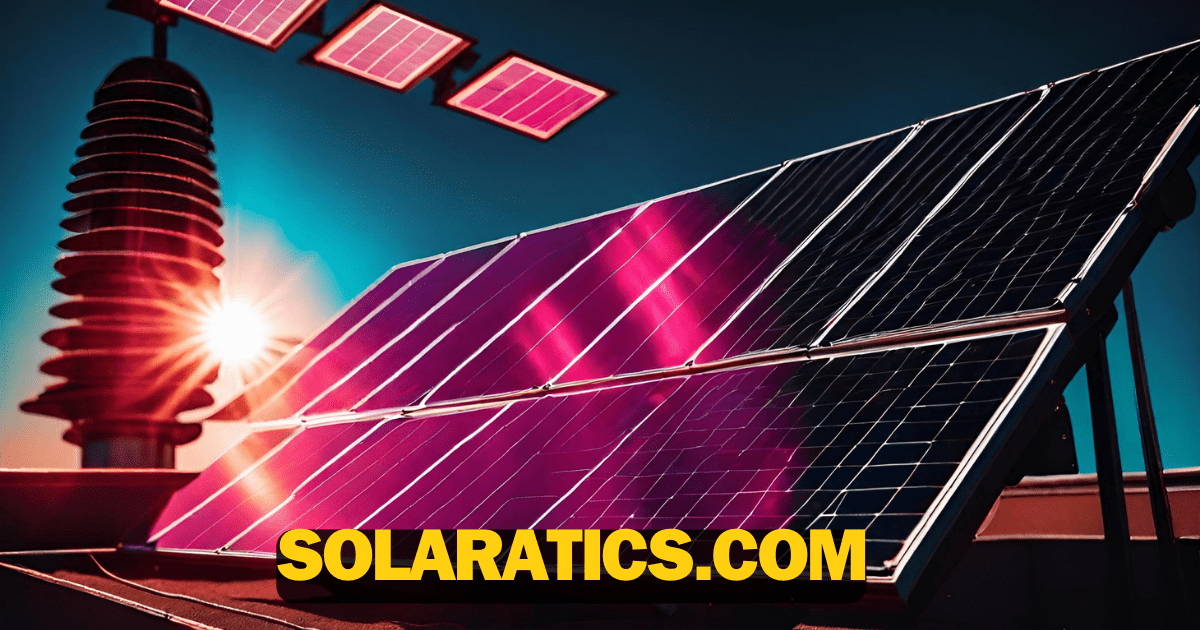Exploring The Top Benefits Of Going Solar: A Comprehensive Guide

Switching to solar energy has become increasingly popular in recent years, as people recognize the numerous benefits it offers.
From cost savings to environmental impact and energy independence, there are several compelling reasons why going solar is a smart choice.
Environmental Benefits of Solar Energy

Solar energy offers numerous environmental benefits that make it a compelling choice for sustainable power generation. Here are some of the key environmental advantages of solar energy:
Reduced greenhouse gas emissions
Solar power is a clean and renewable energy source that produces virtually no greenhouse gas emissions during operation.
Unlike fossil fuels, which release carbon dioxide and other harmful pollutants into the atmosphere, solar energy helps to mitigate climate change and reduce air pollution.
Improved air quality
Traditional forms of energy generation, such as burning coal or natural gas, release pollutants that contribute to smog and air pollution.
By adopting solar energy, we can reduce the reliance on these polluting energy sources, leading to improved air quality and better respiratory health for communities.
Conservation of natural resources

Solar power relies on the abundant energy of the sun, which is a renewable resource. Unlike fossil fuels, which are finite and depleting, solar energy can be harnessed for generations to come without causing resource scarcity or environmental degradation.
Water conservation
Conventional power plants often require significant amounts of water for cooling and other processes. Solar energy systems do not require water for operation, reducing the strain on water resources and minimizing water usage in energy production.
Biodiversity preservation
The extraction and combustion of fossil fuels can have detrimental effects on ecosystems, leading to habitat destruction and the loss of biodiversity.
Solar energy, on the other hand, has minimal impact on natural habitats, allowing for the preservation of biodiversity and the protection of fragile ecosystems.
Noise reduction

Some conventional power generation methods, such as gas turbines or diesel generators, produce noise pollution that can negatively affect nearby communities.
Solar panels operate silently, eliminating noise pollution and providing a quieter and more peaceful environment.
Financial Advantages of Solar Power
The adoption of solar power offers several compelling financial advantages that make it an attractive choice for individuals and businesses. Here are the top reasons to go solar from a financial perspective:

Reduced electricity Bills
Solar energy allows you to generate your own electricity, which can significantly reduce your reliance on utility companies.
By installing solar panels, you can generate power on-site and offset a portion or even the entirety of your electricity consumption.
This leads to substantial savings on your monthly electricity bills over the lifetime of your solar system.
Return over investment (ROI)
Solar panel investments can yield a respectable return on capital. While the upfront costs of installing a solar system may seem significant, the long-term savings on electricity bills often outweigh the initial investment.
As electricity prices continue to rise, your solar system can generate substantial savings over its lifespan, resulting in a favorable ROI.
Government Incentives & Tax Benefits
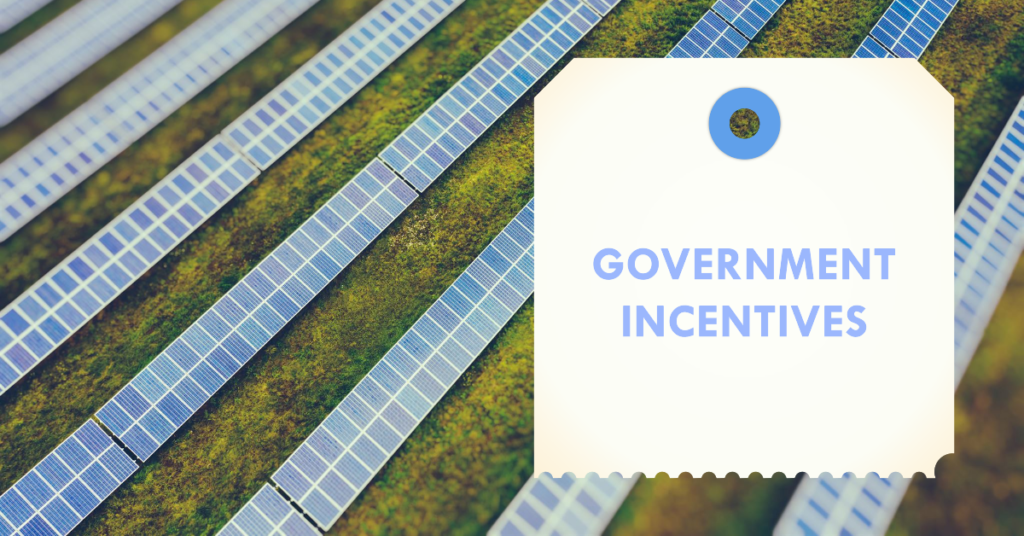
Many governments provide incentives and tax benefits to encourage the adoption of solar energy. These incentives can include tax credits, grants, and rebates that offset the installation costs or provide financial support for solar projects.
Taking advantage of these incentives can further enhance the financial attractiveness of going solar.
Net metering
Net metering programs allow solar system owners to earn credits for the excess electricity they generate. When your solar panels produce more electricity than you consume, the surplus is fed back into the grid, and you receive credits on your utility bill.
This effectively allows you to store excess energy and use it when your solar panels are not generating electricity, further reducing your energy costs.
Increased property value

The value of your property may increase if you install solar panels. Studies have shown that homes equipped with solar energy systems tend to sell at higher prices compared to homes without solar.
Buyers recognize the long-term cost savings associated with solar power and are willing to pay a premium for properties with solar installations.
Energy Independence and Stability
Solar power provides a level of energy independence, as you generate your own electricity on-site. This reduces your vulnerability to fluctuating energy prices and potential disruptions in the grid.
By relying less on external energy sources, you gain more control over your energy costs and protect yourself from future price increases.
Energy Independence And Reliability
There are several compelling reasons why going solar can contribute to energy independence and reliability. Here are the top reasons:
Renewable And Sustainable
A sustainable and renewable source of power is solar energy. By harnessing the energy from the sun, we can reduce our reliance on finite fossil fuel resources such as coal, and oil.
And natural gas. Solar power provides a virtually endless supply of clean energy, ensuring a more sustainable future.
Energy Independence
Generating electricity from solar panels allows individuals, businesses, and even entire communities to become more energy-independent. Instead of solely relying on the electrical grid, solar power enables you to generate your own electricity.
This reduces dependence on traditional energy sources and the associated price fluctuations.
Cost Savings
Installing solar panels can significantly reduce or even eliminate your electricity bills. Once the initial investment is made, solar energy is essentially free.
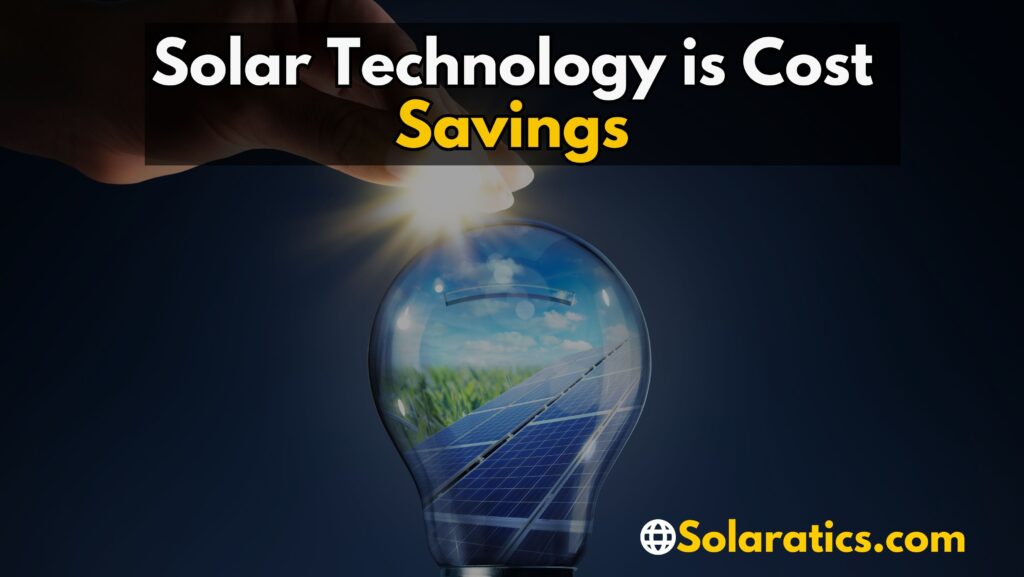
With the right system size and energy management, you can generate enough electricity to meet your needs and potentially sell excess energy back to the grid, further offsetting costs.
Reliability
Solar energy systems are known for their reliability. The sun is a consistent and predictable source of energy, unlike other forms of power generation that are subject to price volatility or supply disruptions.
As long as the sun is shining, solar panels can produce electricity, making them a reliable source of power.
Energy Security

Solar power enhances energy security by diversifying the energy mix. By incorporating solar energy into the overall energy infrastructure, countries can reduce their dependence on imported fossil fuels and increase their resilience against geopolitical risks or disruptions in fuel supply chains.
Long-Term Investment
Investing in solar panels offers long-term benefits. Solar systems typically have a lifespan of 25 to 30 years or more, providing a stable source of electricity over an extended period.
Additionally, the return on investment for solar panels can be substantial, especially with various government incentives, tax credits, and net metering programs available in many regions.
Job Creation and Economic Growth
Going solar not only contributes to energy independence and reliability but also brings significant job creation and economic growth. Here are the top reasons why adopting solar energy can have positive impacts on job opportunities and the economy:
Job Creation
In recent years, the solar business has grown significantly, creating a large number of work opportunities. Installing solar panels, maintaining solar systems, manufacturing solar components, and developing solar technologies all require a skilled workforce.
From engineers and technicians to salespeople and project managers, the solar sector offers a wide range of employment opportunities across various skill levels.
Local Job Opportunities
Solar installations are typically performed by local companies or contractors, which means that going solar supports job creation at the local level.
These jobs cannot be outsourced or relocated, providing stable employment opportunities within communities. By investing in solar energy, you contribute to the growth of local economies and the well-being of residents.
Energy Cost Savings
As more individuals and businesses switch to solar power, the savings on electricity bills can be reinvested into the economy. Consumers and businesses that generate their own solar energy often have extra disposable income.
Which they can use to support local businesses, invest in other industries, or contribute to personal savings and investments.
Innovation and Research

The solar industry fosters innovation and research, driving technological advancements and creating opportunities for further economic growth.
Investments in solar energy research and development lead to the discovery of new materials, more efficient solar panels, energy storage solutions, and grid integration technologies.
This innovation not only benefits the solar sector but also has applications across various industries.
Energy Resilience
Solar energy promotes energy resilience, reducing vulnerability to energy price fluctuations and supply disruptions. Stable and predictable energy costs allow businesses to plan their budgets effectively and allocate resources for growth and innovation.
The reliability and independence offered by solar power create a stable foundation for economic activities.
Solar Energy for Remote Locations

Solar energy offers numerous advantages for remote locations, making it an ideal solution for meeting energy needs in such areas. Here are the top reasons to go solar in remote locations:
Energy Independence
Remote locations often face challenges in accessing traditional electricity grids. Solar power provides a reliable and independent source of energy that can be harnessed in even the most isolated areas.
By installing solar panels, remote communities, and facilities can generate their own electricity and reduce their dependence on costly and logistically challenging fuel deliveries.
Easy Installation And Maintenance
Solar installations in remote locations are relatively simple compared to extending electricity grids. Solar panels can be easily installed on rooftops, open fields, or even portable systems, requiring minimal infrastructure.
Maintenance is also straightforward, typically involving regular cleaning and inspections. This ease of installation and maintenance makes solar energy a practical and efficient choice for remote areas.
Environmental Benefits
Solar energy is a clean and sustainable source of power, providing significant environmental benefits. Remote locations often possess fragile ecosystems that need to be preserved.
By opting for solar power, these areas can reduce their carbon footprint and minimize air and noise pollution associated with conventional energy sources like diesel generators.
Emergency Preparedness
Remote locations are often vulnerable to natural disasters or grid failures, making energy resilience crucial. Solar energy, coupled with energy storage systems like batteries, can provide backup power during emergencies.
This enhances the preparedness and resilience of remote communities, ensuring access to vital services, communication, and medical facilities.
Sustainable Development
Solar energy promotes sustainable development in remote locations. By providing clean and affordable electricity, solar power enables economic activities, supports education, and improves healthcare services.
It creates opportunities for local businesses and stimulates economic growth, contributing to the overall well-being and development of remote communities.
Increased Homebuyer Demand
As environmental awareness and sustainability become more important to homeowners, the demand for properties with solar panels continues to rise.
Buyers are actively seeking energy-efficient homes that offer the advantages of renewable energy. By having solar panels installed, your property becomes more attractive to a larger pool of potential buyers, increasing its market appeal.
Promoting Sustainable Development
Going solar promotes sustainable development by offering numerous environmental, social, and economic benefits. Here are the top reasons why adopting solar energy contributes to sustainable development:
Environmental Impact
Solar energy is a clean and renewable source of power. By harnessing the sun’s energy, solar systems produce electricity without emitting greenhouse gases or other harmful pollutants.
Switching to solar power helps reduce carbon emissions, combat climate change, and improve air quality, thereby protecting ecosystems, biodiversity, and the overall environment.
Energy Efficiency
Solar panels convert sunlight directly into electricity, making them highly efficient compared to traditional energy generation methods.
Solar energy systems can be installed close to the point of consumption, reducing energy losses associated with long-distance transmission.
This improves overall energy efficiency and minimizes waste, contributing to a more sustainable energy system.
Renewable Resource

Solar power relies on sunlight, a virtually limitless resource. Unlike fossil fuels, which are finite and depleting, solar energy offers a sustainable and reliable source of power for generations to come.
By embracing solar energy, we decrease our dependence on non-renewable resources and ensure a more sustainable energy future.
Energy Access
Solar energy plays a crucial role in providing electricity to remote or underserved areas. Off-grid solar systems and mini-grids can bring power to communities that lack access to traditional electricity grids.
Solar-powered solutions enhance energy equity and contribute to bridging the energy access gap, enabling sustainable development in these regions.
Financial Savings

Solar installations offer long-term cost savings. Once the initial investment is recovered, solar energy becomes virtually free, significantly reducing or eliminating electricity bills.
This financial advantage benefits households, businesses, and institutions, allowing them to allocate resources to other sustainable development initiatives or investments.
Technological Innovation
The adoption of solar energy drives technological innovation and advancements. Research and development efforts focus on improving the efficiency, affordability, and integration of solar systems with energy storage and smart grids.
These innovations not only benefit the solar industry but also have broader applications in other sectors, fostering sustainable development across industries.
Advancements in Solar Technology

Advancements in solar technology have significantly improved the efficiency, affordability, and overall performance of solar energy systems.
Here are the top reasons why these advancements make it an opportune time to go solar:
Increased Efficiency
Solar panels are now more efficient than ever before. Advancements in photovoltaic (PV) technology have improved the ability of solar panels to convert sunlight into electricity.
Higher efficiency means that solar panels can generate more power from the same amount of sunlight, maximizing energy production and increasing the return on investment for solar installations.
Cost Reduction

The cost of solar panels has been steadily declining due to technological advancements and economies of scale. Improved manufacturing processes, materials, and design have made solar panels more affordable and accessible.
The decreasing cost of solar installations makes going solar a viable and cost-effective option for a wider range of homeowners, businesses, and organizations.
Energy Storage Solutions
The integration of energy storage systems with solar installations has become more efficient and affordable.
Energy storage allows excess solar energy generated during the day to be stored and used during periods of low sunlight or high energy demand.
Advancements in battery technology have increased storage capacity, improved performance, and reduced costs, making solar energy a more reliable and flexible option.
Smart Grid Integration

Solar energy systems can now be seamlessly integrated with smart grids, enabling better management of electricity generation and consumption.
Smart grid technologies allow for real-time monitoring, optimization, and demand response, ensuring efficient utilization of solar power and reducing strain on the electrical grid.
This integration promotes a more sustainable and resilient energy infrastructure.
Building-Integrated Solutions
Solar technology has expanded beyond traditional rooftop panels. Innovations such as solar shingles, solar windows, and solar facades are being developed, allowing for the seamless integration of solar power into building designs.
These building-integrated solar solutions offer aesthetic appeal, while also generating clean energy, expanding the potential for solar adoption in various architectural and urban contexts.
Internet of Things (IoT) Connectivity
Solar energy systems can leverage IoT connectivity to enhance performance and monitoring capabilities. IoT-enabled devices and sensors can collect data on energy production, and consumption patterns.
And system health, providing valuable insights for optimizing energy efficiency and maintenance. This connectivity improves the overall reliability and performance of solar installations.
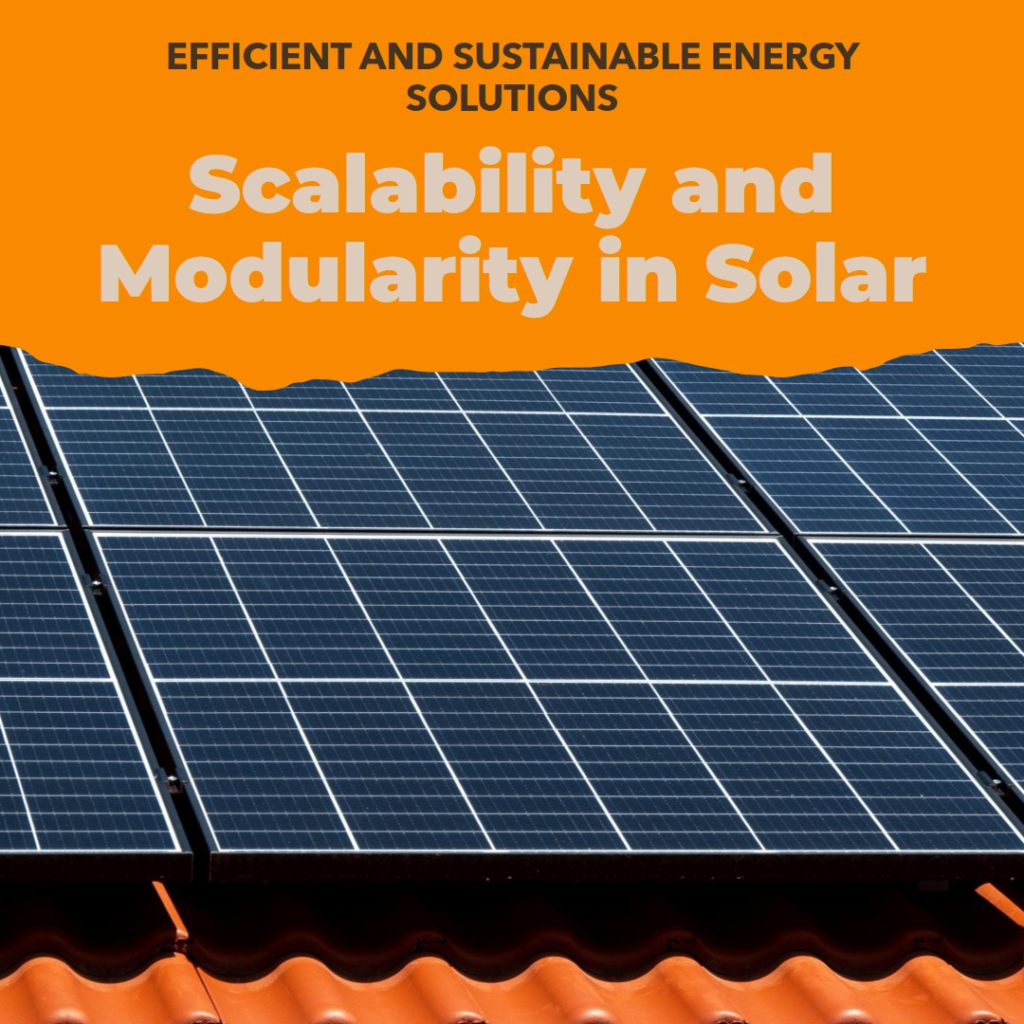
Scalability And Modularity
Solar energy systems have become more scalable and modular, accommodating a wide range of energy needs. Whether it’s a small residential installation or a large-scale solar farm, solar technology allows for flexible system sizing and expansion.
This scalability makes solar energy suitable for a variety of applications, from individual homes to commercial buildings and utility-scale projects.
Conclusion
Going solar offers numerous compelling reasons to harness the power of the sun. From environmental benefits and financial advantages to energy independence, job creation, and enhancing property value.
Solar energy presents a transformative solution for a sustainable future. By embracing solar power, we not only contribute to a cleaner and greener planet but also reap the economic and societal rewards that come with it.
Also Read: What will be Your Average Monthly Electric Bill with Solar Panels In US
OR Federal Solar Tax Credit 2024: Can You Claim the Solar Tax Credit Twice?
